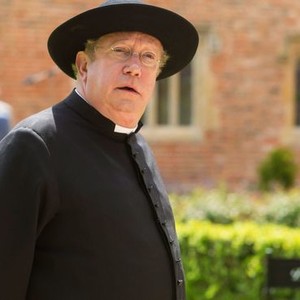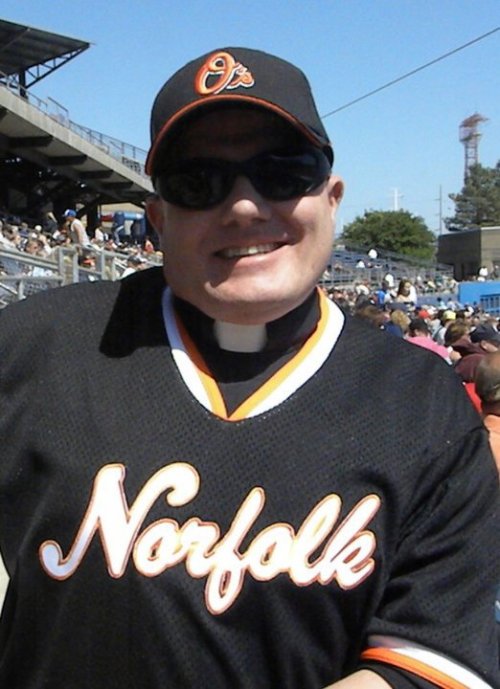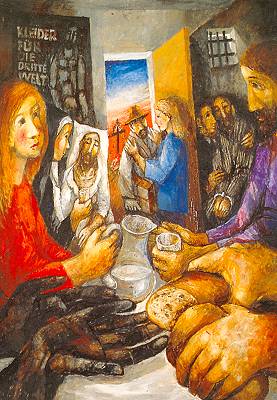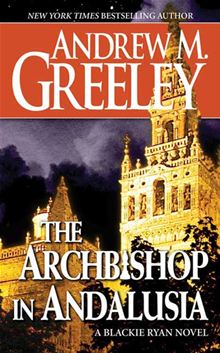Friends of Padre Steve’s World,
Just a short thought tonight at the close of Ash Wednesday, or actually deep into the night after Ash Wednesday. Yesterday was a wonderful day, in which I began to really experience a certain joy in faith, of course as always tempered by reason, and the ministry of caring for a diverse workforce. It was probably the busiest and most meaningful Ash Wednesday I have ever experienced in close to 28 years of Chaplain ministry, which include two years where I was for all intents and purposes an agnostic hoping that God still existed after my return from Iraq, followed by another decade of of doubt, depression, and despondency regarding life, and ministry.
However, since November of last year when I was assigned to my final active duty post, that faith has began to return, as well as a renewal of my calling as a Priest and Chaplain. Likewise, Ash Wednesday became a joyous rather than an onerous observance. I was busy all day with walking about caring for people, conducting the first Ash Wednesday service in over a decade at the shipyard and being out and about responding to people who for whatever reason could not attend the service by still wanted to receive the sign of the cross marked in ash upon their foreheads. It was a day of wonderful surprises as instead of saddling people with strict dietary regulations and fretting over what they were going to have to give up I asked them to really experience God’s love by simply accepting the proposition that God loved them, accepted them, and wanted them to do the same to others.
Of course I followed the liturgy for the day, and read the designated scriptures. I did not hammer the points from the Biblical readings home as hard as I once might have been tempted to do. Nor did I try to use my position to convince people to see things my way, as I admitted, I don’t pretend to give God religious instruction, and instead decided to let the Scriptures do the preaching themselves, instead of me since they were so contrary to our materialistic American culture, and the last time I did so a parishioner attempted to have me charged and tried by Court Martial, I didn’t need to hammer home points but let the Holy Spirit of God do his or her job; with the exception of Jesus I do not ascribe gender to the Trinity. My purpose was to invite people to renewing their faith in Jesus through the confession of their sins without condemning them, and in addition make sure than whenever they come to me in whatever capacity, that I greet them and care for them with love and personal care. I am reminded of the words of Bishop Blackie in The Archbishop Goes to Andalusia, the miscreant Auxiliary Bishop to the Cardinal Archbishop of Chicago goes to Seville Spain.
In the novel Bishop Blackie makes a comment after celebrating Mass in the cathedral at Seville. He said “Every sacramental encounter is an evangelical occasion. A smile warm and happy is sufficient. If people return to the pews with a smile, it’s been a good day for them. If the priest smiles after the exchanges of grace, it may be the only good experience of the week.” (The Archbishop in Andalusia p.77) Honestly, I think that should be the place of the Priest in every encounter, even those that are not sacramental. It should be an everyday part of our lives. That being said there are times that a Priest, Minister, Rabbi, Imam, or other clergy person can be beaten down by life, and even by the leaders of the institutions that they serve. I such cases it is often hard to smile or be compassionate to others because we, at that point are empty vessels, at best hoping and praying that we will again find meaning and joy in our vocations, or succumbing to the pain of rejection and evil committed by clerical leaders in the name of God.
Instead of preaching for people to obey rules, I asked them to consider showing love and care to the poor, the lost, the weak, and the lonely, and not be an ass about it by acting arrogant and brag publicly about their allegedly superior spiritual position. I noted, with quite a bit of honesty that when it came to being a Priest, Chaplain, and Husband I have barely stayed at the Mendoza Line, which is basically hitting for a batting average of about .200. This might keep me in the game due to certain skills, but it will not get me to the hall of fame.
In light of that I hardly have the right to preach to people about how they should live their lives, and follow rules that I struggle with; but instead encourage them to seek God’s love, to be honest about their lives, their strengths, and weaknesses; their successes, and failures, and then allow God to work in and through them as instruments of God’s grace and love.
When I was going through my most difficult times of doubt after Iraq it was Father Andrew Greeley’s Bishop Blackie Ryan mysteries that kept a spark of hope and faith alive in my life. In his novel The Bishop and the Beggar Girl of St. Germain, Bishop Blackie noted “Most priests, if they have any sense or any imagination, wonder if they truly believe all the things they preach. Like Jean-Claude they both believe and not believe at the same time.” I can say truthfully that I know what that is like.
More recently we have discovered the latest BBC series based on G.K. Chesterton’s “Father Brown” mysteries. Now that I have seen the series and am watching it a second time, with the addition of previously unaired episodes on Netflix, I am becoming interested in reading Chesterton’s novels, but I digress.
Today was another exceptionally busy day of ministry beginning with an employee who decided to decided to trust me with his marital and spiritual issues based on my Klingon Valentine’s Day article, which I sent out through our Public Affairs Officer to all hands note in a truncated form. He appreciated my openness, and willingness to share my failings as a husband, Priest, and human being in a way that most ministers won’t. It was a long session and I believe that we have built a relationship that will either help save his marriage, or set the stage for a divorce with a soft landing. Sometimes, and sadly, because of how embittered relationship can become, that is the most Christian thing that will happen. I hope we can work to bring reconciliation to this couple. However, I cannot predict what will happen, but promised that I would walk with them through this terrible time.
But just before the appointment I was called because one of our civilian administrative assistants died unexpectedly before work this morning. She was beloved, and what some people don’t realize, that in places like the Naval Shipyard, our civilian employees are like family to each other. They work with each other for decades, it’s not like the active duty military where we transfer every few years. In the case of the shipyard, which is the oldest in the Western Hemisphere, many employees have family connections going back generations to it. So I spent about half of my day with those employees doing grief counseling, and since I hung around to get to know people I ended up answering other people’s questions about faith, religion, and church history. It was wonderful. I didn’t push anything on them, and explained the differences in what different Christian denominations believe without condemning any of them. Of course that is a significant part of my spiritual “Long Strange Trip.” Because of that I am willing to appreciate the differences of different denominations, even as I am able to explain how they differ with other Christian denominations, without condemning them.
So it was a wonderful day, but it was exhausting, as at my heart I am an introvert who chooses to push my boundaries and at work function as an extrovert. Of course that means that when I come home I often withdraw into my emotional bucket in order to regenerated so I can do the next day. By the way that is a Star Trek Deep Space Nice reference. Google it if you must, but for practical purposes I am an emotional changeling, like DS 9’s Chief of Security, Odo, after so long I have to revert to my emotional introvert gelatinous state in order to regenerate at function in the military and the church. That is an odd comparison, but it is the best I can do.
But, where was I?
Oh that’s right, Ash Wednesday ministry; ministry the day following, Father Brown, and Bishop Blackie Ryan, are my inspiration. It is true that they are fictional characters, but the men who wrote their stories were not, they were very real, and their fictional characters have helped me continue to believe, Even when the Bible didn’t, and likewise brought a reality and joy to ministry that I didn’t know; even when I knew it all. But, as the late MLB Hall of Fame Baltimore Orioles manager, Earl Weaver noted “it’s what you learn after you know it all that counts.” That is quite true of my spiritual life.
Likewise, there are people who use the Bible as a weapon, in order to justify their misdeeds and hatred for others. It can be a terrible thing. In one of the Father Brown mysteries, Chesterton, writing as his character Father Brown, wrote:
“Sir Arthur St. Clare, as I have already said, was a man who read his Bible. That was what was the matter with him…. Of course, he read the Old Testament rather than the New. Of course, he found in the Old Testament anything that he wanted—lust, tyranny, treason. Oh, I dare say he was honest, as you call it. But what is the good of a man being honest in his worship of dishonesty?”
The problem is, that people of every faith tend to use select parts of their Holy Scriptures as weapons against people who they deem unworthy of the love of God. They are honest people, but as Father Brown noted: “But what is the good of a man being honest in his worship of dishonesty?” Sadly, that is all too true of too much of the Christian Church, as well as the clergy of other religions.
Until tomorrow, Peace
Peace,
Padre Steve+



















